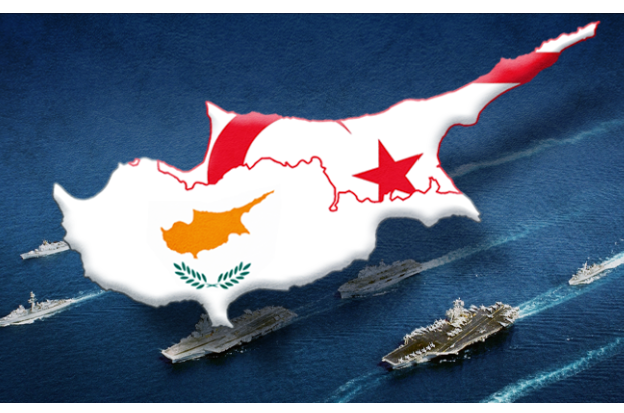Cypriot President Nikos Christodoulides emphasized that the enhancement of relations between Turkey and the European Union hinges on Turkey’s involvement in resolving the long-standing division of Cyprus. This statement came during discussions with Germany’s President Frank-Walter Steinmeier in Nicosia. Turkey, aspiring to join the EU for many years, faces halted accession talks due to concerns over its human rights and rule of law record.
Turkey doesn’t recognize the Greek Cypriote government as the sovereign of the island. A run-away republic called Northern Cyprus Republic of Turkey is currently governing the northern portion of the island.
Turkish accession to EU is dead, but there is many other smaller fishes to fry. Ankara is urging Brussels to start talks on a new and expanded Customs Union treaty, which will cover services and agriculture. Economists in both camps agree a new treaty will be mutually beneficial. But, will it happen? The declaration by Greek Cypriotes seems to mean a no, unless Turkish Cypriotes are persuaded to engage in yet another round of reunification talks.
Island divided since 1974
The division of Cyprus, an island in the Eastern Mediterranean, dates back to 1974 following a Turkish invasion triggered by a Greek-inspired coup. While the Republic of Cyprus is a member of the EU since 2004, the northern part of the island remains recognized only by Turkey.
Christodoulides advocates for a solution to the Cyprus issue as a pathway to closer Turkey-EU relations, suggesting the EU appoint an emissary to help revive peace talks, with support for the UN’s leading role in the peace process. Steinmeier, echoing this sentiment during his official visit, highlighted the need for EU member states to consider Turkish actions in Cyprus when assessing its relations with the bloc.
What comes next?
“Navigating the EU’s intricate role in Cyprus negotiations, or its revival attempts, amidst evolving EU-Turkish dynamics ahead of EU elections and Commission transitions poses increasing complexity. Soon, we’ll witness whether EU-Turkish relations (and Cyprus) will feature prominently on leaders’ agendas in March, with Brussels and Nicosia preparing diligently for tangible progress”, comments George Kakouris for Ekatemerini.
He adds
“Today’s window narrows, and our insistence on an EU envoy akin to those for Brexit or Kosovo or Georgia won’t open it. We’re neither Kosovo nor Georgia but an EU member state. The essence lies in EU involvement (inevitable and bolstered organically alongside improved atmospherics), not nomenclature.
Before the presidential elections, Brussels listened keenly to which openings each candidate was willing to make in Cyprus. It might sound unfair, but without openings, there can be no progress. If major countries pull the strings, we sit with them at the table to secure our interests collectively. Now is the time to intensively table a specific plan and not wait for them to say, “Here it is.”
What does Greek Cyprus want?
Exactly what kind of roadmap Greek Cypriotes offered in Gymnich, has not been disclosed by EU. Yet the constant delays in giving Turkey a firm perspective to open customs union talks suggests Greek Cypriotes have put proposals on the table, which Turkey might be unwilling to accept.
Turkish Cypriotes have firmly refused to engage in another round of reunification talks, insisting instead on redoubling efforts for recognition.
Cyprus, once again, is becoming the Catch-22 for Turkey – EU relations. Despite promises by various Brussels organs in 2023, any progress for Turkey on the road to political or economic integration goes through Cyprus, where rival sides are committed not to cooperate.
Follow our English language YouTube videos @ REAL TURKEY: https://www.youtube.com/channel/UCKpFJB4GFiNkhmpVZQ_d9Rg
And content at Twitter: @AtillaEng
Facebook: Real Turkey Channel: https://www.facebook.com/realturkeychannel/
